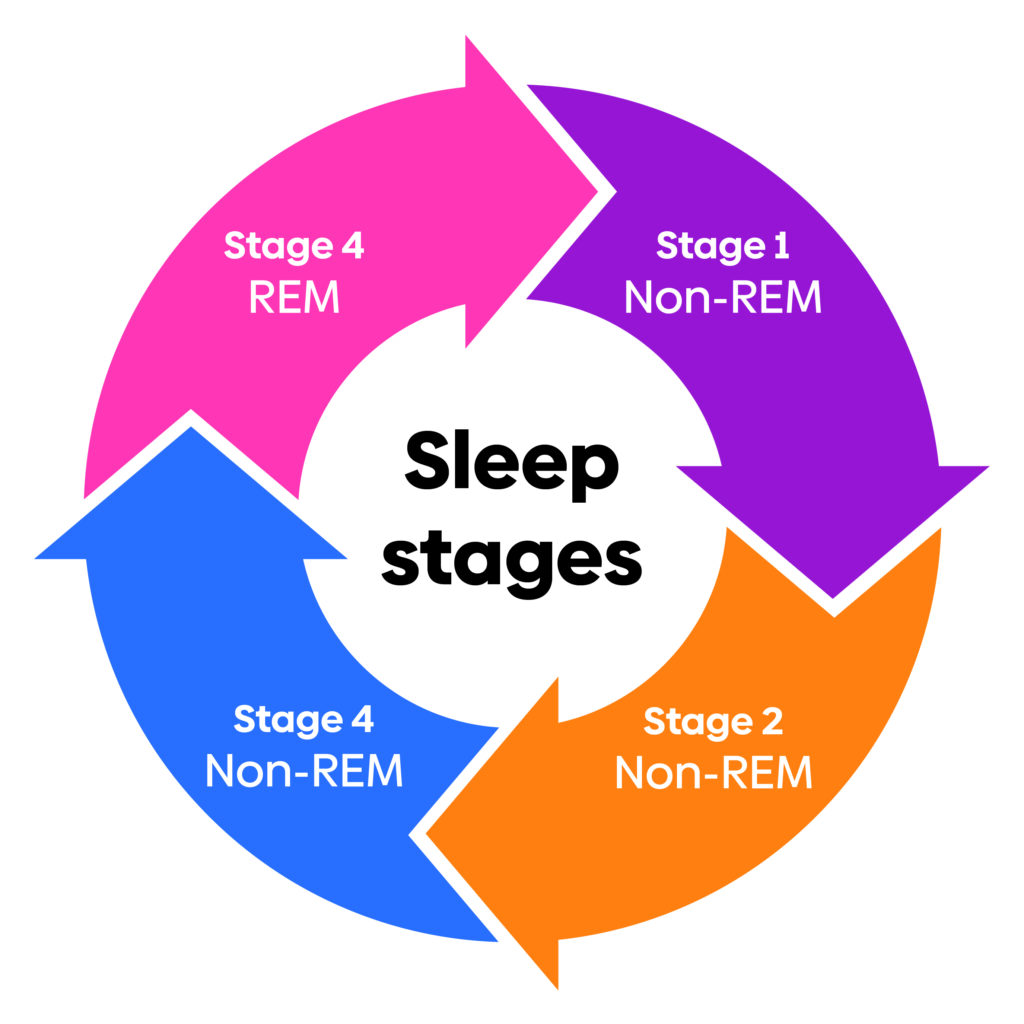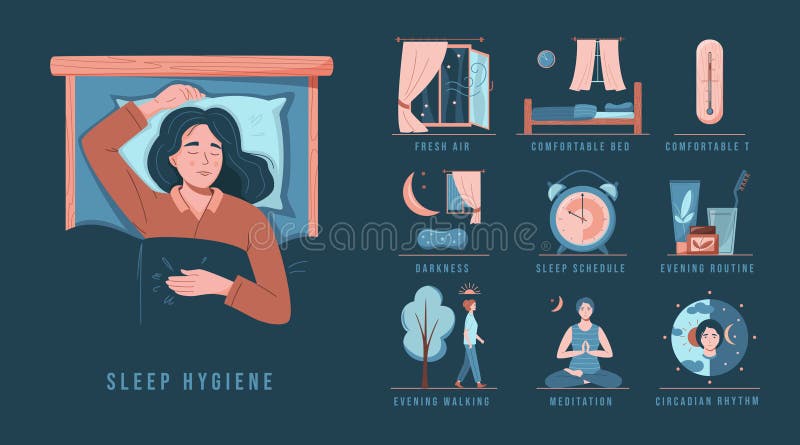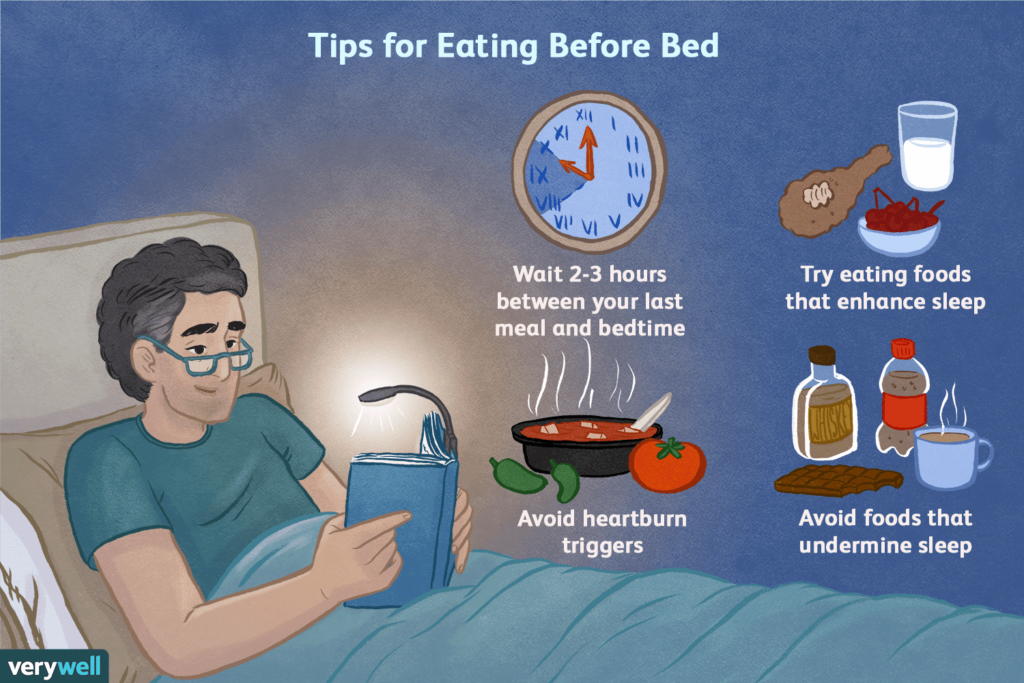
INTRODUCTION:
Sleep acts like steel armor in the battles of life’s difficulties. Just as strong armor protects soldiers from harm, sleep provides essential mental and physical comfort in our busy lives. In the hustle of work, caring for children, and managing technology, we often forget to prioritize our sleep. This neglect can lead to discomfort, sadness, and a decline in bodily functions. Sleep is a natural process that allows the body and brain to rejuvenate. Just as the body needs oxygen and food, it also requires sleep to function effectively. Researchers are increasingly recognizing the vital role sleep plays in learning, memory, health, safety and longevity. This article highlights the importance of sleep and offers useful tips for achieving a healthier sleep routine.
keywords: Importance of sleep, quality of sleep,healthier sleep routine.
Unlocking The stages of Sleep:
https://sleep.hms.harvard.edu/education-training/public-education/sleep-and-health-education-program/sleep-health-education-47: The Power of Sleep: An Armor Against Unhealthy Living for a Happier Life;Sleep is a vital process essential for our health and well-being, consisting of several distinct stages that cycle throughout the night. These stages include Non-Rapid Eye Movement (NREM) sleep—comprising Stages 1 to 3—and Rapid Eye Movement (REM) sleep. Stage 1 (N1) is the lightest stage, lasting about 1 to 5 minutes, where the body transitions from wakefulness to sleep, marked by relaxation and slowed brain activity. Stage 2 (N2) lasts approximately 10 to 60 minutes and accounts for about 50% of total sleep time. During this stage, brain activity slows further, and physiological functions such as heart rate and temperature drop, which aids in memory consolidation and maintaining sleep.
Stage 3 (N3), or deep sleep, typically lasts 20 to 40 minutes and is characterized by delta waves.This stage is crucial for physical recovery, tissue repair, and immune system strengthening. Finally, REM sleep occurs about 90 minutes after falling asleep and increases in duration with each cycle. This stage features rapid eye movements, vivid dreaming, and heightened brain activity, playing a key role in cognitive functions like learning and emotional regulation. Each sleep stage contributes uniquely to our physical and mental health, highlighting the importance of a balanced sleep cycle for optimal functioning and well-being. Prioritizing quality sleep is essential for enhancing our overall quality of life.

How can we achieve the complete sleep cycle:
Achieving a complete sleep cycle is all about setting up habits and routines that help your body and mind transition through each stage of sleep, leading to a restful night. Following are the main steps of achieving good sleep;
https://www.healthline.com/health/healthy-sleep/how-to-fix-sleep-schedule: The Power of Sleep: An Armor Against Unhealthy Living for a Happier Life;The Power of Sleep: An Armor Against Unhealthy Living for a Happier Life;
1.Make a Complete Sleep Schedule:

Consistency is key to success when it comes to sleep. A regular schedule is important for your body. You should set fixed times for waking up and going to bed to help activate your internal clock. Experts recommend that adults aim for 7 to 9 hours of sleep each night. Find a sleep schedule that works for you, and stick to it to successfully complete your sleep cycle.
2.Relax Before Sleep:

Many people complain about not being able to sleep, often because their minds are racing. Overthinking can make it hard to fall asleep. To prepare your mind, choose relaxing activities before bedtime. Consider meditation, reading, listening to music, or even painting. Try to avoid using your phone at least 30 minutes before bed.
The Power of Sleep: An Armor Against Unhealthy Living for a Happier Life;
The Power of Sleep: An Armor Against Unhealthy Living for a Happier Life;
Optimize Your Environment:

Your surroundings can greatly affect your sleep quality. Make your bedroom comfortable according to your preferences. Some people sleep better in a clean, organized room, while others prefer a dark and quiet space. Adjust your environment to suit your needs for better sleep.
The Power of Sleep: An Armor Against Unhealthy Living for a Happier Life;
4.Limit Exposure to Light:

In the evening, try to avoid blue light from screens, as it can interfere with melatonin production, which is important for sleep. Use dim lighting in the hour before bedtime to help your body prepare for sleep.
5.Watch Your Diet and Hydration:

Avoid heavy meals and caffeine close to bedtime, as these can disrupt your sleep. If you’re hungry, opt for a light snack instead.
6. Exercise Regularly:

Daily exercise is important for good sleep. Aim for light exercises in the evening to help your body relax.
7.Manage Stress and Anxiety:

Stress and anxiety can negatively impact your sleep. They can keep your mind active and distract you from falling asleep. Use relaxation techniques like yoga or deep breathing to calm your mind before bed.
8.Avoid Daytime Naps:

While napping can be tempting, it can disrupt your nighttime sleep cycle. If you need to nap, limit it to 20-30 minutes, and avoid long naps during the day.
9.Track Your Sleep Routine:
Consider using a sleep tracker or app to monitor your sleep patterns, as it can help you understand your nightly routines and identify areas that need improvement. Many apps and trackers provide insights on factors such as sleep duration, sleep stages, and disturbances, offering a clearer picture of your sleep quality over time. Reviewing this data allows you to adjust your habits, making it easier to adopt a healthier sleep routine. However, if you continue to struggle with sleep despite following these tips and making necessary adjustments, it may be wise to consult a healthcare professional. Persistent sleep issues can sometimes indicate underlying health concerns, such as sleep disorders, stress, or other medical conditions that require specialized evaluation and treatment. A healthcare provider can help you pinpoint these issues and suggest tailored solutions, ensuring you get the rest you need for optimal health and well-being.
Keywords:
Consistency, relaxation, light limitation, balance diet, nap control, sleep tracking, regular excercise.
Sleep: Nature’s Healer and Guardian of Health:
There’s a reason they say, “A good night’s sleep keeps the doctor away.” Sleep is more than rest; it’s a sanctuary where the body and mind recharge, heal, and rejuvenate. Here are some beautiful ways sleep nurtures our well-being.
https://health.ucdavis.edu/blog/cultivating-health/better-sleep-why-its-important-for-your-health-and-tips-to-sleep-soundly/2023/03: The Power of Sleep: An Armor Against Unhealthy Living for a Happier Life;1.Boosts Mental Health and Mood Stability:
Quality sleep plays a fundamental role in emotional balance and mental well-being. During sleep, the brain processes emotions, which helps to stabilize mood and manage stress. Lack of sleep can amplify feelings of anxiety, irritability, and depression, while adequate rest helps individuals approach challenges with greater resilience and emotional control. Sleep also supports the brain’s ability to manage stress and cope with day-to-day pressures, making it easier to maintain a positive outlook and a balanced state of mind.
keywords:
mental well-being, emotional stability, mood regulation, stress reduction, anxiety relief, mental resilience
2.Enhances Physical Health and Strengthens Immunity
During deep sleep stages, the body undergoes crucial repair processes that are essential for maintaining physical health. Cells regenerate, muscles recover, and tissues are repaired, which strengthens the immune system and boosts resilience against infections and illnesses. Sleep helps the body produce cytokines—proteins that combat inflammation and infection—enhancing immunity. Studies have shown that well-rested individuals are less likely to catch common infections, and over the long term, quality sleep can contribute to a longer, healthier life by consistently renewing the body’s defenses.
keywords:
immune system support, bodily repair, physical recovery, infection resistance, longevity, cellular health.
3.Improves Cognitive Function and Memory Retention
Sleep is essential for various cognitive functions, including memory consolidation, which is the process of converting short-term memories into long-term storage. As we sleep, the brain strengthens and organizes memories, making it easier to recall information and stay focused during waking hours. Additionally, sleep improves cognitive clarity, enhancing focus, and productivity. For students and professionals alike, quality sleep is vital for learning, problem-solving, and decision-making, as it helps the brain absorb new information and respond with improved mental acuity.
keywords:
brain function, memory consolidation, focus, cognitive clarity, productivity, learning capacity.
4.Supports Weight Management and Balances Metabolism
Sleep has a direct influence on hormones that regulate hunger and fullness, such as ghrelin and leptin. When we are sleep-deprived, ghrelin levels (hunger hormone) rise, while leptin levels (satiety hormone) drop, leading to increased appetite and potential weight gain. This imbalance also affects metabolism, making it more challenging to maintain a healthy weight. Additionally, poor sleep can lead to lower energy levels, which reduces motivation for physical activity, creating a cycle that impacts weight control. Prioritizing good sleep supports a balanced metabolism, helping individuals maintain a healthy lifestyle.
keywords:
metabolism regulation, weight control, appetite hormones, energy levels, healthy lifestyle
5.Reduces Risk of Chronic Diseases and Enhances Heart Health:
Quality sleep is associated with a reduced risk of chronic illnesses such as heart disease, hypertension, and diabetes. When sleep is consistent, the body maintains healthier blood pressure levels and better glucose metabolism, both of which are crucial for heart health. Sleep helps regulate insulin levels, reducing the risk of diabetes, and also alleviates strain on the cardiovascular system. Chronic sleep deprivation, on the other hand, can lead to elevated blood pressure, increased risk of inflammation, and heightened risk for heart disease. Emphasizing the importance of sleep is essential for anyone aiming to improve their long-term health.
keywords:
cardiovascular health, diabetes prevention, blood pressure regulation, chronic illness prevention, heart disease.
conclusion:
Sleep is an irreplaceable pillar of health, a natural healer, and a powerful shield against life’s challenges. Through its intricate stages, sleep rejuvenates the mind, fortifies the body, and regulates the emotions. It enhances cognitive function, bolsters immunity, and contributes to a balanced metabolism, playing a crucial role in preventing chronic illnesses. By establishing a consistent sleep routine, creating a calming environment, and practicing healthy habits, we can unlock the full benefits of quality sleep. In prioritizing sleep, we give ourselves the gift of mental clarity, physical vitality, and emotional balance, a pathway to a happier and healthier life. Embrace sleep, for it is not merely a habit, but a powerful ally in well-being.


